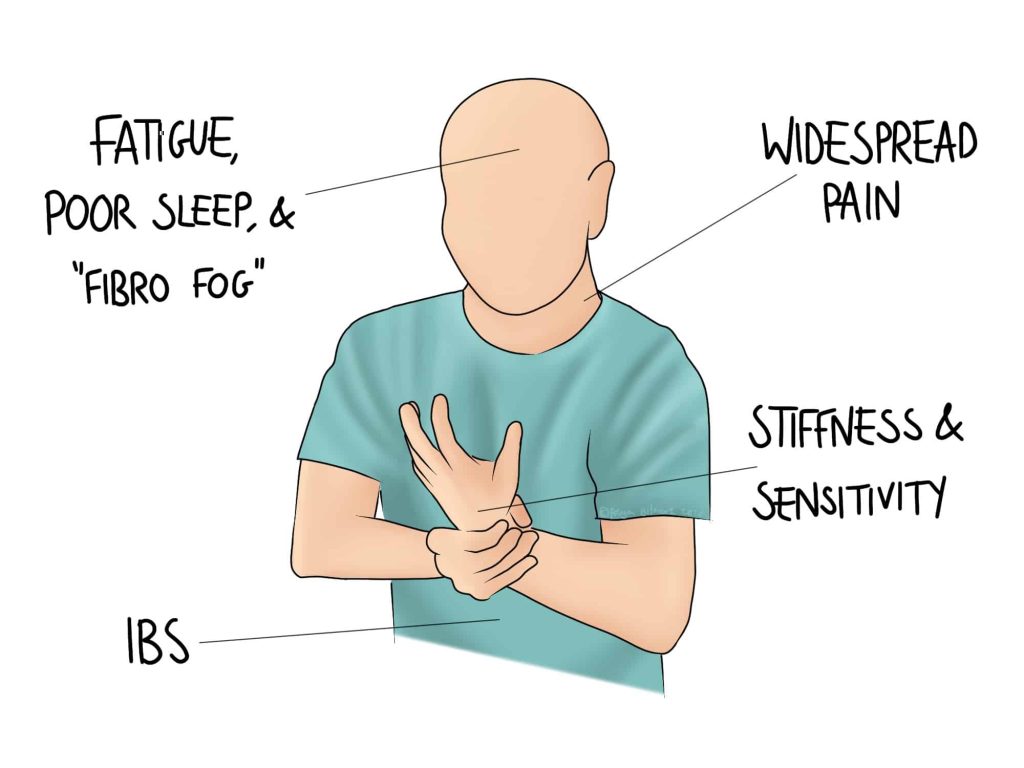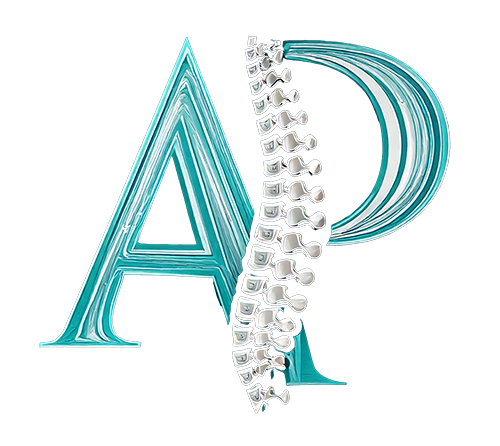Fibromyalgia
Fibromyalgia is a poorly understood condition characterised by widespread pain and sensitivity. It is considered to be a neurological condition in which the central nervous system starts processing sensation incorrectly.

Symptoms of Fibromyalgia
- The main symptom of fibromyalgia is pain. Typically the pain is widespread and does not follow any particular patterns.
- Stiffness, especially in the morning or after periods of sitting still
- Unusually high sensitivity to pain
- Poor sleep, fatigue
- Cognitive difficulties, known as fibro fog
We know that onset often comes between the ages of 30 and 50, particularly after a stressful period of time. There is also a genetic link with siblings of patients being more likely to develop fibromyalgia themselves.
Understanding as much as possible about your condition will help to control its symptoms. Some patients find that being given a formal diagnosis is relieving, and learning about the science of pain gives them more control. There are good resources online that can help.
Your Osteopaths job
One of the best ways to manage the symptoms of fibromyalgia is with an exercise plan. This can be designed alongside osteopathic treatment, and we can monitor your progress as part of your treatment plan. Some people also find acupuncture to be helpful. If appropriate, we can trial this with you.
If your fibromyalgia causes stiffness and tension into the neck, it may cause cervicogenic headaches. We can help to manage the symptoms of these headaches.
Fibromyalgia can present similarly, or in conjunction to other conditions, such as rheumatoid arthritis or trapped nerves. As part of your assessments, we will look at the behaviour of muscles, joints, and nerves. If a nerve is trapped, it follows a specific pattern of symptoms. This means we can differentiate between fibromyalgia pain and nerve pain. We can also highlight symptoms of other conditions that might need further investigation.
Referring on
Diagnosis is still controversial, as some professionals regard fibromyalgia as a collection of symptoms rather than a condition. Current thinking is that it is a disorder that falls on a spectrum, and a questionnaire is a useful tool for diagnosis. It would be useful for your GP to complete this with you, but your osteopath can do so too.
One treatment with that can be effective is CBT: cognitive behavioural therapy. You may be able to organise this through your GP, or you may prefer to find a therapist yourself. Support groups can also be really helpful.
Medications can also be useful. There are a number of different families of painkillers that can be effective for managing pain like this. However there is a lot of variation in how different people react to different drugs. It is not unusual for your GP to work with you through a number of medications before finding one that suits you.
Book in to see how we can help with your chronic pain.

